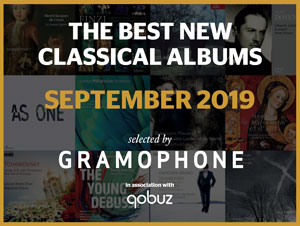Strauss: Salome at Opera Ballet Vlaanderen | Live Review
Robert Thicknesse
Tuesday, January 14, 2025
Mondtag’s picture-book story-telling indulges fully in the implications, but toys with the funny side in a rather coy way that never really catches fire
⭐⭐⭐⭐


Salome at the OBV (Photo: Annemie Augustijns)
You get your money’s worth with Ersan Mondtag. This German director – who was given his first opera work by Flanders Opera and is now being hired elsewhere (e.g. an upcoming Forza del destino in Lyons in March) – has a startlingly vivid imagination and idiosyncratic dramatic vision, and does his own designs. The aesthetic is unique: big primary colour, cartoon-book visuals, and the broadest possible variety of action. Mondtag doesn’t hold with pigeonholes, genres, boxes: things career around all the possibilities of stage action, mixing them promiscuously, usually exhilarating and rarely self-conscious. Well, the opera world needs this kind of boundary-busting (or boundary-denying) exuberance, so you’re not about to catch me complaining.
Salome is the most mainstream show he’s been asked to do so far here – the previous ones were Schreker’s Smith of Ghent and Weill’s Silbersee – but his approach is recognisably the same, even down to a familiar stage concept, a huge rotating castle on stage echoing that of The Smith, with lurid flashback motifs like a mosaic of a screaming-baby-clutching demon and a horned devil-woman.
At the start, this grim khaki fortress (with Soviet-heroic sculptures of Herod and Salome) is patrolled by equally colourless mediaeval/futurist soldiers, as Jochanaan booms from his barred dungeon, before vampy Salome sweeps on and shatters the monochrome with the most vivid feminine scarlet, a floor-length slinky dress split to the hip, and cascading red curls. This is Klimt-meets-Cyndi Lauper, a sort of grrl-power parody (since Salome only has power over Narraboth and the other menials). It’s hard to remember – in fact only becomes clear as things progress – that she is a sulky teen, not a full-grown femme fatale. In the pit Alejo Perez carefully guides Strauss’s slowly-unfolding score towards the first climaxes, as Salome wheedles the soldiers to bring Jochanaan out of his hole, and she starts on her extravagant verbal… well, shall we call it 'sexual harassment' of the imprisoned wildman?
The preposterous is never far from the surface of Salome – certainly of Oscar Wilde’s script, and in a different way of Strauss’s musical realisation. Mondtag’s picture-book story-telling indulges fully in the implications, but toys with the funny side in a rather coy way that never really catches fire.


Angela Denoke, Allison Cook and Michael Kupfer-Radecky in Salome (Photo: Annemie Augustijns)
The comedy being a bit underpowered, the show veers more down the familiar path of art as a branch of student politics. Specifically, here, we are invited to see Jochanaan as a hate-speaking, misogynist, ruthless fanatic, who 'refuses to see Salome as an individual.' You might think he has other things on his plate, without having to deal with this horrible, psychotic little girl turning up and talking dirty out of the blue. But directors do love a bit of psychological motivation, however abstruse – and, after all, you have to do something on stage – so in we plunge.
Mondtag proposes that Salome, a teen revolutionary, is attracted by Jochanaan’s radical politics, and wants to take things further, perhaps in a kind of Baader-Meinhoff setup. Sexually rejected by him, she goes a bit crazy, and what ensues may or may not be a fantasy, including the beheading stuff, and (here) a kind of palace coup staged by Salome and the other dancing girls (in naked body stockings) who execute Herod and his pals and wave machine guns around in triumph.
And Herod’s setup is certainly regrettable, full of bad sexual attitudes and general sluttishness, so nobody will mind too much when he gets whacked. And despite all this, the opera progresses in a recognisable way, being really a one-woman show, Allison Cook (alternating with Astrid Kessler) battling through a cold, starting a little tentatively but burgeoning into untrammelled fervour as it goes on. Not just that, but Mondtag demands the most physical performance, with pretty alarming levels of erotic engagement between Salome and that head.
There is sturdy support from Angela Denoke (Herodias), Florian Stern as the flailing, abusive Herod, Michael Kupfer-Radecky’s forthright Jochanaan. Perez leads a careful, well-paced reading, a slow-build crescendo of angst and intensity that finally busts out all over the place as mayhem engulfs the stage. It’s certainly all very engaging and satisfactory as a show, whatever you make of the dramaturgy. But Mondtag has a worthy aim: how to recreate something of the sensation this opera – perhaps the first piece ever whose hero/heroine evokes absolutely zero sympathy – produced on its first appearance in 1905.
Until 18 January operaballet.be






